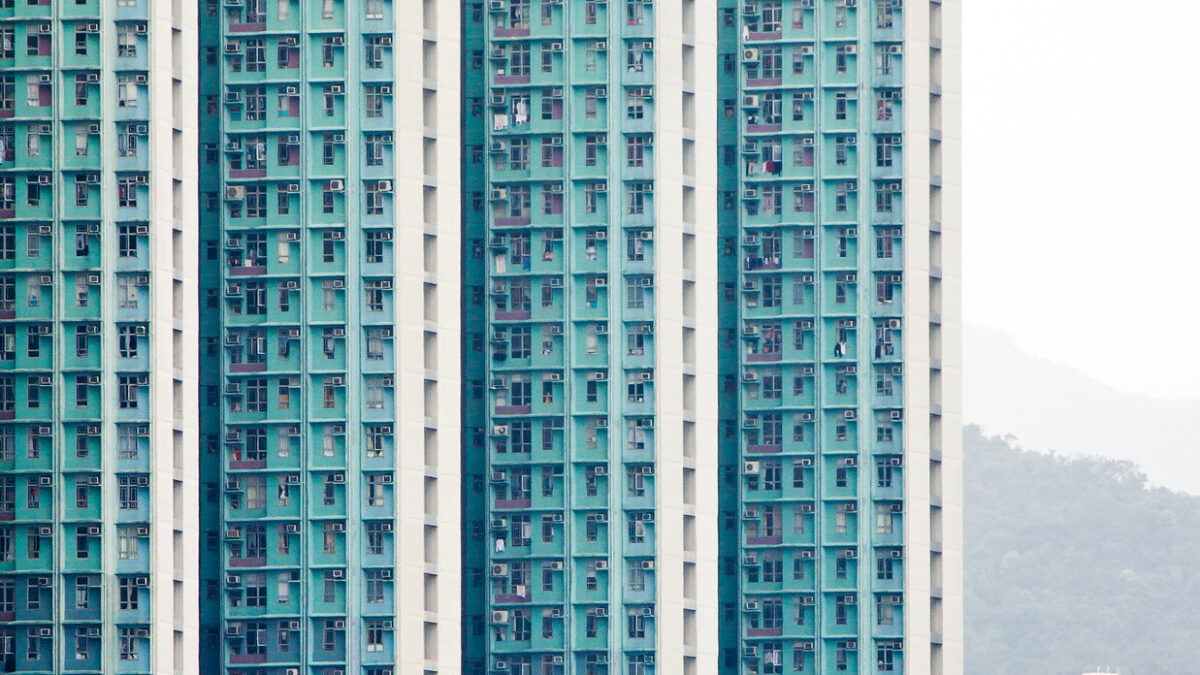Evergrande, one of China’s largest real-estate developers, filed for bankruptcy last week, the latest sign that the nation’s once high-flying real-estate market is falling apart. China’s economy is heavily influenced by its real-estate market, and China’s continued struggles will undoubtedly harm the broader world economy.
The ruling Chinese Communist Party’s (CCP) policies have always driven the boom and bust of China’s real-estate sector. The party abolished private property rights and nationalized land and home ownership after it took control of China in 1949. Before 1980, the Chinese government controlled all housing in urban areas, including construction and distribution. City dwellers received public housing allocations through their work units based on needs, seniority, and social class (for example, people classified as counter-revolutionaries wouldn’t qualify for public housing). Most of these public housing units were small and poorly built, and their only attractive feature was the low rent due to government subsidies.
In the 1980s, the CCP recognized it had to grow China’s economy to keep the party in power. The Chinese government began to loosen its control over the housing sector by privatizing public housing, encouraging homeownership, and welcoming private companies to develop residential and commercial real estate. China began to embark on a four-decade construction frenzy.
The Chinese government stimulated demand for housing through its urbanization movement, aiming to transform excessive rural laborers into industrial workers in cities and better control the Chinese population. As of 2011, over half of the nation’s 1.3 billion people lived in urban areas, compared to less than 20 percent in the 1980s. More urban dwellers meant more demand for urban housing.
Housing demand remained strong in China for decades for other reasons too. Chinese household disposable income grew at an annual rate of 10 percent on average between 1999 and 2010 as the economy grew. Yet the Chinese have few options to invest their newfound wealth because the nation’s stock markets behave like a casino, and many Chinese see it as a place to lose money. Meanwhile, the Chinese government’s strict capital control and the reluctance to open China’s financial sector to foreign banks and investment firms mean the Chinese people have minimal access to foreign stock markets and investment products.
Problems in the Real-Estate Market
Thus, other than parking their money in state-owned banks and earning next-to-nothing in interest income, buying a house is how most Chinese people build wealth and save for retirement. About 90 percent of Chinese families own their homes, and nearly a quarter own more than one property. The real-estate sector and related industries became a powerful growth engine for the Chinese economy, representing almost a third of the nation’s GDP. But behind the real-estate market’s impressive growth lie many problems.
State-owned banks supported the government’s housing policies by extending easy credit to developers with little oversight or risk management. Since the government maintains land ownership, land transfer fees paid by developers have become a significant source of revenue for local governments. Local government officials issued presale permits to developers for partially built projects to attract real-estate development in their municipalities. With these permits, developers sold properties, sometimes only 25 percent completed, to buyers at total prices, promising to complete the projects between one and three years later.
Proceeds from these presales supposedly went into escrow accounts to pay for the completion of these projects. But due to lax rules and regulations, developers faced little restriction in spending these proceeds either on new development projects or investing in other projects that sometimes had little relation to their core businesses — for example, Evergrande invested in electric vehicles and bought a soccer team.
With the help of easy credit and permissive government officials and bankers, Chinese property developers became notoriously over-leveraged. Evergrande carried more than $300 billion in debt. China is saturated with millions of incomplete housing projects, dubbed “ghost cities” — enough to house the population of France.
Xi’s Wealth Redistribution
After Xi Jinping came to power, he showed a deep distrust of China’s private sector and sought to strengthen the party’s control so it could “steer the economy and industry along a path of its choosing and channel private resources into strengthening state power,” according to The Wall Street Journal. Xi introduced the slogan “common prosperity” and pledged to “reasonably regulate excessively high incomes and encourage high-income people and enterprises to return more to society.” In truth, Xi’s “common prosperity” is a socialist policy that empowers the government to redistribute income and wealth through coercive means.
Xi carried out his “reasonable” wealth redistribution by cracking down on China’s private companies and arresting prominent entrepreneurs, including Ren Zhiqiang, a real-estate tycoon.
After encouraging developers to borrow and build excessively for decades, the Chinese government began to clamp down on developers in late 2020. Beijing “capped banks’ exposure to real estate, both in loans to developers and mortgages; introduced a system of ‘three red lines’ that restricts more indebted developers from taking on new debts; and overhauled land auctions,” The Wall Street Journal reported.
Developers Struggle
To make matters worse, these new government regulations were introduced during the Covid-19 pandemic. China’s economic growth had already slowed due to Xi’s strict “zero Covid” policy, which trapped millions of people and many businesses in extended lockdowns.
China’s overleveraged developers struggled to survive under Xi’s credit squeeze and the “zero Covid” policy. Due to a persistent cash crunch, developers couldn’t complete presold projects and struggled to pay interest on the debt they owed. Housing sales and home prices dropped, reflecting that Chinese consumers have lost confidence in the housing market. Angry homebuyers who had already prepaid incomplete units took to the streets to protest, and some refused to make their mortgage payments to banks. Stock prices for property developers tumbled.
This month, Evergrande filed for bankruptcy protection in a U.S. court. Meanwhile, Country Garden, another primary Chinese developer, suspended trading on its bonds, stopped making interest payments, and issued a profit warning. Its stock price fell below $1 on the Hong Kong Stock Exchange. Commercial developer Soho China reported that its profit for the first six months of 2023 dropped more than 93 percent from a year earlier. By some estimates, about a fifth of Chinese developers could face insolvency.
The fallout of China’s real-estate market weighs on the rest of the nation’s economy; there is less demand for building materials, furniture, and home appliances, and workers in these sectors could face mass layoffs. China’s economy grew only 0.4 percent from a year ago, the country’s worst economic performance since 2020. China’s currency, the yuan, slid to a 16-year low against the U.S. dollar last week. The Chinese authorities cut key interest rates to stimulate the economy while suspending the release of youth unemployment data, which some suspect could be as high as 46.5 percent. Xi’s predecessors built a house of cards. Xi knocked it down but doesn’t know how to fix it other than covering up embarrassing numbers.
Worldwide Ramifications
As the world’s second-largest economy, China’s economic struggle will harm the world economy. Global investors who invested in bonds issued by Chinese developers have already suffered a $100 billion loss. Slowing economic growth in China means the country will import less and have lower demand for commodities and natural resources.
China’s economic woes will also have geopolitical implications. From 1919’s May Fourth Movement to 1989’s pro-democracy protests in Tiananmen Square to the 2022 “White Paper” protest against the Chinese government’s cruel “zero Covid” policy, China’s modern history was often shaped by Chinese youths who were dissatisfied with the governing elites and demanded drastic change. Xi must be nervous about the restless energy of China’s unemployed youths, and one way he may choose to direct this energy and avoid domestic chaos is to send young people to war — i.e., invading Taiwan sooner rather than later.
A profound lesson we should learn from the Covid-19 disaster is that none of us are immune to China’s problems.









